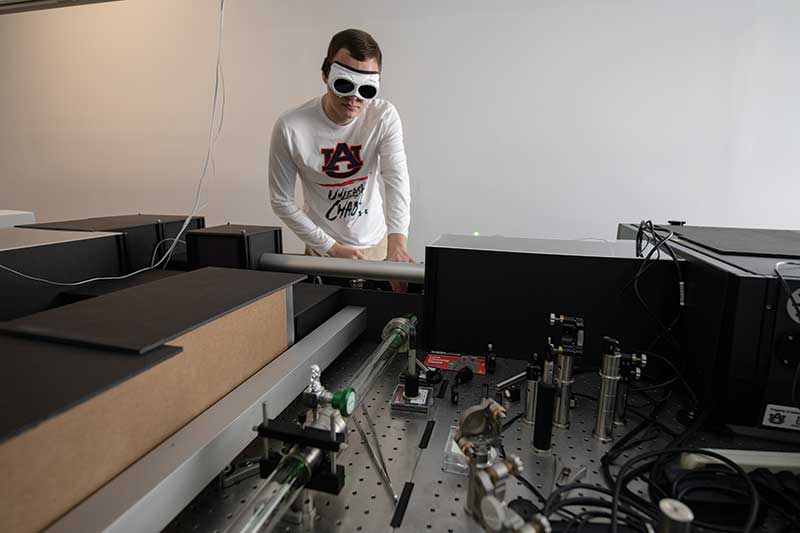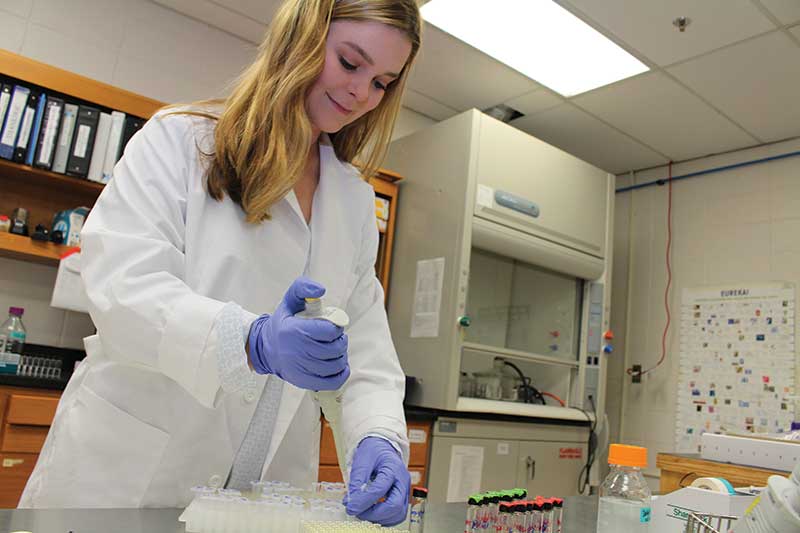Spotlight: Director, Office of Undergraduate Research Dr. Lorraine Wolf
Article body
What does the Office of Undergraduate Research do?
The Office of Undergraduate Research promotes and facilitates research involvement for undergraduates. As a university, Auburn recognizes that undergraduate research is a high-impact experience. That means it can have a very significant influence on a student’s intellectual development and educational experience. Auburn also, through its undergraduate research program, offers the student a “small school” by engaging directly with a research mentor or a small research group. At the same time, the student gets access to world-class facilities and nationally recognized research faculty.
We have a publication venue for students who do research at Auburn and want to publish something they can add to their resume. We have an annual symposium event that we host, so students can exhibit their research and exchange ideas and see what other students are doing around campus. We offer, on our website, tools for professional development and resources—for instance, things like how to write an abstract for a professional conference and how to make an effective oral or poster presentation. We hold professional development workshops on those opportunities as well.
How does the Undergraduate Research Fellows Program work?
The fellowship program is specifically geared toward supporting faculty-mentored student research. It’s a competitive program in which high-achieving students can apply with a faculty mentor. They construct a research proposal, and they apply jointly as a team—student and mentor. In addition to a stipend and project funds, the students are provided with a cohort experience; we have fellowship meetings where they have an opportunity to interact with other students and learn about how research is done in other disciplines.
Can you give some examples of particular projects that students have been involved in?
It always impresses me how broad the range of topics is for the undergraduate research fellows. They cover everything from your typical, bench-style research to the creative arts. We’ve had fellows researching topics such as theatre lighting, how the brain reacts to different kinds of music, nanoparticles for cancer treatment, use of botanicals or natural supplements in healthcare, artificial tissues and motor response of artificial body parts and even how athletic movement can be optimized for preventing injury and improving performance.
What is AUJUS?
It’s the Auburn University Journal of Undergraduate Scholarship, which is an online, refereed publication that accepts submissions only from undergraduate students. Students can submit year-round, and it provides them with a venue for publishing. This gives them an opportunity to be the lead communicating author. Their mentors and other people involved are co-authors, and it works for the timeframe of an undergraduate. This gives them an introduction into what it’s like to publish in a professional venue.
What do you enjoy most about your job?
In the Undergraduate Research Program, I’m interacting with some of Auburn’s top students. I’ve been very fortunate to have very collegial colleagues. I’ve had a good department, I’ve had a lot of support from the university and I’ve had good students to work with.
Auburn University is a nationally ranked land grant institution recognized for its commitment to world-class scholarship, interdisciplinary research with an elite, top-tier Carnegie R1 classification and an undergraduate education experience second to none. Auburn is home to more than 30,000 students, and its faculty and research partners collaborate to develop and deliver meaningful scholarship, science and technology-based advancements that meet pressing regional, national and global needs. Auburn's commitment to active student engagement, professional success and public/private partnership drives a growing reputation for outreach and extension that delivers broad economic, health and societal impact. Auburn's mission to educate, discover and collaborate drives its expanding impact on the world.



